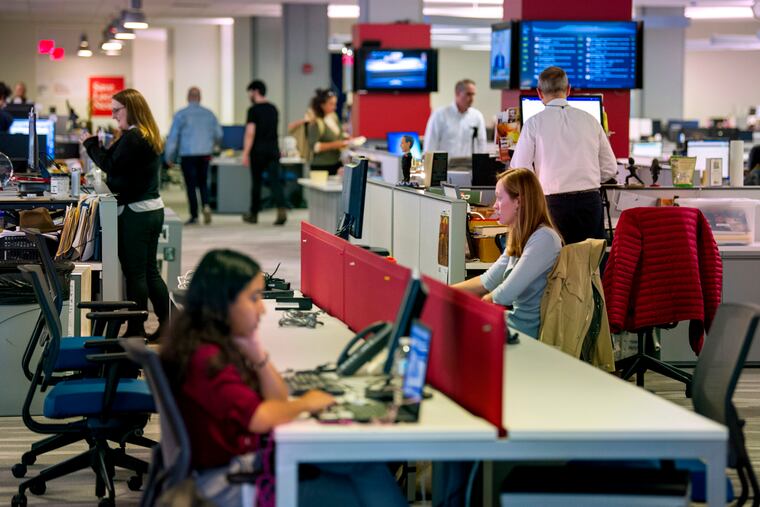What will the ‘Future of Work’ look like? The Inquirer received a $500,000 grant to find out.
A yearlong multimedia project will focus on challenges and opportunities in Philadelphia as the city attempts to create more family-sustaining jobs.

The William Penn Foundation has awarded The Inquirer and its owner, the nonprofit Lenfest Institute, a $500,000 grant to support a yearlong multimedia project on the “Future of Work” in Philadelphia, a city that has struggled for generations to generate plentiful good-paying jobs, the groups said Thursday.
The Inquirer has hired Ezequiel Minaya, most recently corporate finance editor at Forbes, as editor of the project, which will involve partnerships with other news organizations in the region and with data providers to share research and insights into the Philadelphia-area economy.
“I have long admired The Inquirer for its history of public service and world-class journalism. My hope is that the Future of Work project will add to that legacy,” said Minaya, who will start Aug. 3.
Minaya acknowledged that what it means to work had been changing long before this year. “But the changes triggered by the pandemic, and further fanned by the protests, promise to be seismic and fundamental. It’s our mission to help make sense of it all and contribute to the plotting of a course ahead for Philadelphia,” he said.
Between February and May, Philadelphia lost nearly 100,000 jobs, a 13% decline, as the economy went through wrenching shutdowns because of COVID-19, according to the Bureau of Labor Statistics. Over the same period, the entire region lost 13.5% of its jobs, far more than the the 7.7% nationwide loss.
But Philadelphia’s job-growth problems have persisted for decades, and even when there is growth, as there has been in recent years, most new jobs are in low-wage sectors, where jobs pay $35,000 a year or less, according to a report last year by the Center City District. That made Philadelphia an outlier among the 25 largest U.S. cities, the report said.
More than 17,000 adults in Philadelphia work full time yet live below the poverty line, according to the U.S. Census Bureau.
Numerous efforts have attempted to boost the economic prospects of poor Philadelphians, including the Lenfest North Philadelphia Workforce Initiative at Temple University. Last summer that effort received a $2.6 million grant from the Lenfest Foundation, which is independent of the Lenfest Institute, to expand workforce development.
Another initiative is Philadelphia Anchors for Growth and Equity, a collaboration of the Economy League, city government, and more than a dozen Philadelphia-area institutions that is trying to create jobs by increasing local purchasing by large institutional buyers.
The $500,000 grant for “Philadelphia: The Future of Work” at The Inquirer came about when the William Penn Foundation contacted the Lenfest Institute for help in designing and envisioning a project on family-sustaining jobs and the future of work in the city, according to Jim Friedlich, executive director and chief executive of the Lenfest Institute for Journalism, which also makes grants to other news organizations.
“The Lenfest team and I felt that The Inquirer was in the best position to cover this topic, based upon the strength of its business news team and the scope of its news resources,” said Friedlich, adding that the Future of Work grant is among the largest made to support public-service journalism in the Philadelphia area.
Janet Haas, chair of the William Penn Foundation, a major financial supporter of efforts to boost the Philadelphia economy, said she expected thoughtful reporting to help enhance workforce development in the region.
“People want and need to work, and our community must identify promising approaches and effective opportunities for employment,” she said.